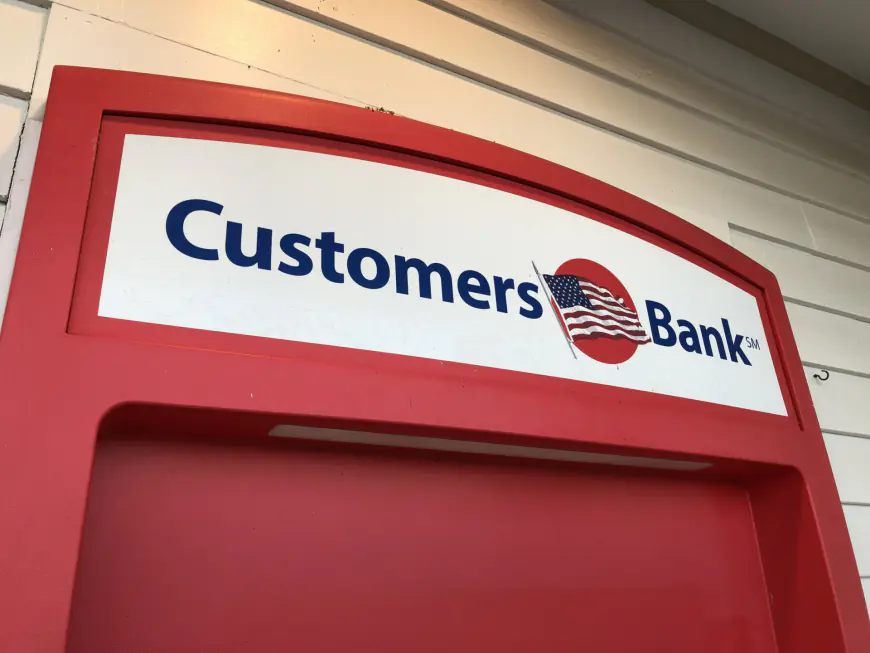Fed enforces restrictions on crypto-friendly Customers Bank
The Federal Reserve is cracking down on Customers Bancorp, a bank known for its crypto-friendly approach, forcing it to jump through new hoops before it can continue catering to the crypto industry. As one of the few banks in the U.S. willing to engage with digital assets, Customers Bancorp now has to give the Fed […]

The Federal Reserve is cracking down on Customers Bancorp, a bank known for its crypto-friendly approach, forcing it to jump through new hoops before it can continue catering to the crypto industry.
As one of the few banks in the U.S. willing to engage with digital assets, Customers Bancorp now has to give the Fed a 30-day heads-up before forming any new relationships with crypto companies.
The bank even runs an instant payments platform allowing businesses to make tokenized payments using blockchain tech. But the Federal Reserve isn’t impressed.

Recent examinations by the Federal Reserve Bank of Philadelphia revealed major flaws in how Customers Bancorp manages risks, particularly in complying with anti-money laundering (AML) laws and the Bank Secrecy Act (BSA).
The Fed’s response? Make the bank’s life harder until it shapes up.
Board oversight and risk management
The Federal Reserve has ordered Customers Bancorp’s board of directors to step up their game and get a grip on the bank’s operations, especially when it comes to their crypto activities.
Within 60 days, the board has to come up with a plan to tighten oversight. This plan needs to spell out exactly how they’re going to maintain control over the bank’s major operations and make sure that management is sticking to the rules.
The board must also make sure that the people in charge of the bank’s compliance with BSA/AML and OFAC regulations know what they’re doing and have the resources they need.
If the bank’s board doesn’t monitor adherence to policies and laws, including how the bank handles its crypto strategy, the Fed says they’re going to be in deep trouble.
Risk management is another area where the Fed is turning the screws. Customers Bancorp has 60 days to submit a new risk management plan that’s up to the Fed’s standards.
The plan needs to include enhanced policies, procedures, and standards to identify, assess, and manage risks. The Fed wants to see clear roles and responsibilities, adequate resources, and regular updates on risk exposures.

The Fed is also demanding that the bank establish strong controls for its dollar token activities. The board needs to be able to identify and oversee any risks that come up, and they need to make sure the bank is operating in a safe and sound manner.
BSA/AML compliance program and customer due diligence
The Fed isn’t stopping at risk management. They’re also coming down hard on Customers Bancorp’s compliance with the Bank Secrecy Act and anti-money laundering regulations.
The bank has 60 days to roll out a revised BSA/AML compliance program that meets the Fed’s standards.
This program has to include a system of internal controls designed to keep the bank on the right side of the law, especially when it comes to customer due diligence, beneficial ownership, and monitoring for suspicious activities.
The Fed is also insisting on a comprehensive risk assessment. This assessment needs to look at all of the bank’s products and services, the types of customers they’re dealing with, and where these customers are located.
The bank’s BSA/AML compliance officer has to be up to the task, with the right resources and training to maintain a compliance program that fits the bank’s size and risk profile.
If anything goes wrong, there needs to be a mechanism in place to track, escalate, and review compliance failures at the highest levels of the bank.
On top of that, Customers Bancorp has to overhaul its customer due diligence program. The bank needs to have strict policies and procedures in place to collect, analyze, and keep accurate information on all its customers.
This includes verifying their identity, understanding their source of wealth, and knowing what kind of transactions they should be expecting.
The bank also has to fix any gaps in due diligence for its existing customers, and it needs a solid method for assigning risk ratings to each customer based on factors like customer type, transaction volume, and location.
What's Your Reaction?









































































































